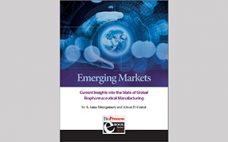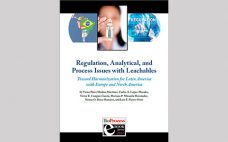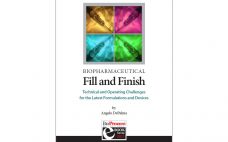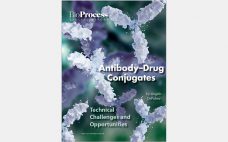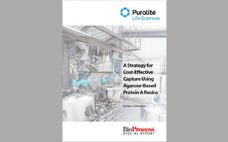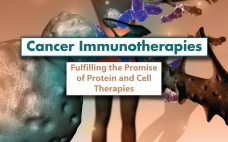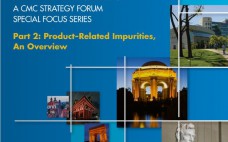Opportunities for establishing strong biopharmaceutical capabilities are expanding across the globe. This e-book seeks to encapsulate the current state of emerging markets/countries, tracing key elements above and offering examples to show where (in the world) the biopharmaceutical industry is expanding and securing its footholds. Generally, to succeed in these markets, foreign companies must exercise efficient resource management and control, show creativity and receptiveness to cultural differences, develop new strategies, and manage expectations. Working with local partners can provide access to…
eBooks
Regulation, Analytical, and Process Issues with Leachables: Toward Harmonization for Latin America with Europe and North America
The pharmaceutical industry follows strict regulations regarding impurities, including process-related leachates. Plastic manufacturers use hydrophobic, nontoxic additives for manufacturing containers for use in the pharmaceutical and food industries. However, some issues about dealing with such impurities are not yet resolved. In developing countries, regulators are working on guidelines to help local companies ensure characterization of impurities. In this exclusive editorial eBook, authors from Mexico describe some issues related to plastic leachables in the context of ongoing efforts to harmonize regulations…
BPI Lab: Essential Technologies for Development, Characterization, and QA/QC
There’s a secret hiding in plain sight: many analytical methods and technologies initially designed for pre-clinical development have equally important applications in commercial development. BioProcess International and BioTechniques, sister publications and leading journals that combined, cover the entire biopharmaceutical process, from discovery to development and manufacturing, partnered to create this special eBook, highlighting and detailing fourteen analytical technologies that provide laboratory technicians and scientists with vital information to help project managers and engineers make educated decisions that ultimately affect every…
Extractables and Leachables: Standardizing Approaches to Manage the Risk
The implementation, maturation, and benefits of single-use technologies in biopharmaceutical development and manufacturing are well documented and understood. As analytical methods and testing services also rapidly improve, it is clear that management of risk associated with extractables and leachables also must evolve. Standardization is universally accepted as a goal; how to define, implement, and educate the industry is where debate resides. The container–closure segment has had more experience dealing with leachables and extractables than those implementing single-use process components do…
Biopharmaceutical Fill and Finish: Technical and Operating Challenges for the Latest Formulations and Devices
Because they occur after two highly engineering, and science-driven phases of biomanufacturing – expression and purification – biopharmaceutical fill and finish processes have not received the respect traditionally that they deserve. Yet of all competencies associated with bringing biopharmaceuticals to market, fill and finish arguably are the most specialized. This eBook reports on the technical and operating challenges impacting the latest formulations and devices including: outsourcing, contamination, standardization (pre-filled syringes), lyophilization, and serialization. Get informed on the current state-of-the-art technologies…
Special Report on Antibody-Drug Conjugates: Technical Challenges and Opportunities
Among the emerging targeted therapies in biotechnology, antibody–drug conjugates (ADCs) hold a unique position. An ADC consists of a monoclonal antibody (MAb) with affinity to tumor cells, a cytotoxic small-molecule payload, and a linker connecting the two. Together the MAb, conjugation chemistry, and cytotoxin increase the complexity of ADCs several-fold relative to unmodified MAbs — and exponentially relative to chemotherapies. Viewing ADCs as hybrids of antibody- and chemotherapy-based cancer therapies is tempting. That description applies chemically and structurally, but ADCs’…
Special Report: A Strategy for Cost-Effective Capture Using Agarose-Based Protein A Resins
It is well recognized that the cost of Protein A resins is substantial. If a developmental monoclonal antibody (MAb) makes it to marketing approval and manufacturing, the high cost of purification using a Protein A resin is amortized over a large number of purification cycles, and the contribution to cost of goods is reduced to acceptable levels. However, a high percentage of clinical projects will fail, and the Protein A resin will be used only for a small number of…
Special Report on Continuous Bioprocessing: Upstream, Downstream, Ready for Prime Time?
Once an engineering curiosity and smallscale laboratory technique, continuous bioprocessing has evolved in just a few short years to a topic of intense and increasing interest to most bioprocessors. Critics point to a steep learning/adoption curve, but that is nothing new in biomanufacturing.Andrew Zydney is a distinguished professor of chemical engineering at Pennsylvania State University. He has noted these challenges facing continuous processing: commercially unproven unit operations (especially downstream), a lack of equipment robustness, sterility concerns, and uncertain development timelines…
Cancer Immunotherapies: Fulfilling the Promise of Protein and Cell Therapies
With few exceptions, both small-molecule and biological cancer treatments have contributed only incrementally towards achieving long-term responses or outright cures. In this regard, emerging cell- and protein-based cancer immunotherapies represent game-changing strategies for treating even refractory cancer. With long-term responses now possible, medical science may be on the verge of delivering on the long-unfulfilled promise of making cancer a manageable disease. But impediments to commercializing cancer immunotherapies are substantial. Producing cell-based treatments entails substantial hands-on manipulation and perfecting the logistics…
CMC Strategy Forum Special Focus Series: Part 2 Product-Related Impurities, An Overview
Introduction by Cheryl Scott The CMC Strategy Forums focus on relevant chemistry, manufacturing, and controls (CMC) issues throughout the life cycle of a therapeutic and thereby foster collaborative technical and regulatory interaction. Forum chairs share information with regulatory agencies to help them merge good scientific and regulatory practices. Outcomes of forum meetings are published in BioProcess International and on the CASSS website. This process is meant to help ensure that biopharmaceutical products manufactured with advancing technologies in a regulated environment…

